
20.
Mac DeMarco
2
[Captured Tracks]
While the sleazy and unnerving nature of Mac DeMarco’s debut EP, this year’s Rock and Roll Night Club, made for an intriguing listen and a good display of his skills, it turned out all the Canadian songwriter had to do was let his songs speak for themselves. Early singles from 2 (“My Kind of Woman,” “Freaking Out The Neighborhood,” “Ode To Viceroy”) revealed that DeMarco had rid himself of the lipstick and tales of late night desire in favor of vignettes that perfectly captured the awkward stage of life that has become an expectation of twenty-somethings the past half decade. DeMarco’s simple yet affecting tales of waiting for life to start, the need for someone to wait with, and the simple joys of a cigarette benefitted immensely from a change in style. In easing up his voice, DeMarco’s lyrics take on a more sincere tone, and the slacker vibe opened up the arrangements to where he could highlight his abilities on the guitar, the free and whimsical tones of his clean sounding instrument undercutting the heaviness of his laments. 2 is an excellent guitar-pop album that also functions as a document of stunning artistic growth in a year’s time.
– Ryan Lester
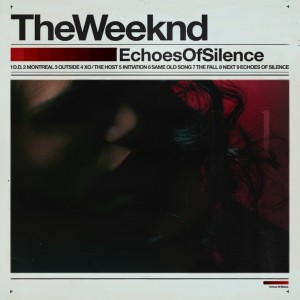
19.
The Weeknd
Echoes of Silence
[Self-released]
Yes, Echoes Of Silence was released last year, after our “Best Albums of 2011” list was published. But that just means we can hold it up with all of the other great R&B releases from the past year.
Arguably the best (and easily the darkest) installment in The Weeknd’s Trilogy, Echoes of Silence sees Mr. Telsafye’s sonic palette expand further than ever. Though the subject matter still meditates on dangerously narcotized and lust-fueled after-after parties, it’s taken on from far more distraught, desperate perspectives. Once that jaw-dropping MJ cover is finished, the silky pleas of “Montreal” kick off a four-song suite that includes a gloriously eerie invocation of Cults (“Outside”) and terminates with “Initiation,” which feels so claustrophobic and menacing, it’s hard not to imagine yourself cramped and locked in The Weeknd’s trunk.
The victory lap that sees the album out isn’t so bad either. (Although, ever since Clams Casino dropped his original mix of the instrumental for “The Fall” it’s been hard to listen to it without wondering “what if.”) The Trilogy ends with Echoes’ title track, a sober piano solo that sounds far removed from the depravity that preceded it. And just when it seems like the past three albums’ partying may have caught up with him, one little question—“Baby, please/ Would you end your night with me?”—leaves us all but right at the beginning of the Trilogy. Mmph.
– Weston Fleming

18.
Spiritualized
Sweet Heart Sweet Light
[Double Six / Fat Possum]
A lot changed for Jason Pierce in the four years following Songs In A&E. That album was written both before and directly after he became severely ill and the tenor of its songs reflected that. Now healthy and under a brighter spotlight, Pierce revived Spiritualized and recorded one of 2012’s most tender, honest, and remarkable albums. At first glance, Sweet Heart Sweet Light sounds like an apology for its predecessor’s maudlin overtones. On the epic “Hey Jane,” Pierce sings of his discovery of life’s joy and proclaims the titular Jane as his love. On the surface everything is coming up rainbows, but it’s really a front for a darker, more unstable reality. “Hey Jane when you gonna die?” Pierce repeats before the sunny thoughts return. It’s this juxtaposition of reinvigorated life and paranoia of death that forms the thematic crux of Sweet Heart Sweet Light. Throughout the album Pierce tries to put on a happy face to cover up his preoccupation with death. This is the chronicle of a beaten man trying to hide his pain and stand back up again. It’s real life depicted in art, and art this truly is.
– Jason Hirschhorn

17.
Motion Sickness of Time Travel
Motion Sickness of Time Travel
[Spectrum Spools]
Rachel Evans has a lovely voice that wonderfully conveys the stargazing attitude her music often adopts. Strange, then, that this massive self-titled work–arguably her best release to date–finds her using it less than usual. Whereas her cosmic cooing often acted as another melodic instrument on earlier efforts like Luminaries & Synastry, on this double album her voice sounds more distant than ever–it’s little more than the shadow of a shadow of an echo on “Summer of the Cat’s Eye,” for example. But if we hear her voice less, it’s because we hear her machine drones more; in fact, calling them “drones” doesn’t really do them justice. Her synths are stunningly versatile, capably maneuvering from squiggly, glitchy flickering to shimmering, strong, bell-like resonance to church organ majesty over the course of just a few of “The Center”’s 24 minutes. Indeed, the sonic progression–of moods instead of melodies, of connotations and subtleties–is perhaps this work’s most impressive feature, like how she so effortlessly moves from the giddy arpeggios that open “One Perfect Moment” to absolutely atonal noise in the track’s midpoint. Producing drone music that’s coherent and varied? It’s not easy, but Rachel Evans sure makes it sound like it is.
– Josh Becker
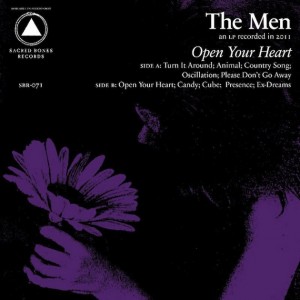
16.
The Men
Open Your Heart
[Sacred Bones]
Something about The Men’s Open Your Heart feels gratifying without necessary explanation — it’s one of those records that leaves another impression in the depths of our rock and roll-stained insides. This isn’t quite a sentiment I would use for 2011’s Leave Home, although it’s valid to assume that The Men got soft this year when comparing the tracks “L.A.D.O.C.H.” and “Candy.” Going “soft” seems harsh, but in reality Open Your Heart’s new direction might have been the best thing the band could have done after such a rugged album. From the moment “Turn It Around” kicks into its full force it’s clear this band still has a heavy agenda for rock music. Instead of using every bit of energy they have, though, the album spaces itself out into peaks and valleys of instrumental and anthemic rock goodness that few contemporary bands even try to achieve. Chris Hansell, the notoriously abrasive former member of the group, displays a certain unevenness within Open Your Heart in an interesting way. His mindset is still based on pure dissatisfaction while the rest of the band is moving forward. On “Candy” they seem free and content, singing “when I hear the radio play, I don’t care that it’s not me.” In its entire respect, this album breathes a continuous tussle of rock and roll and both its highs and lows.
– Andrew Halverson
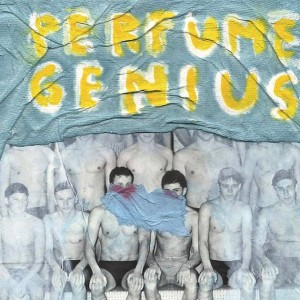
15.
Perfume Genius
Put Your Back N 2 It
[Matador]
It opens with only Mike Hadreas gathering his voice for that which is to follow. I have to wonder what goes into a project like this, Perfume Genius’s killer second album. Not just the emotional material from which it comes, but that process of reconciling wrought emotion against sentimentality and all its fears. If this was a hurdle Hadreas navigated, he doesn’t show it. Put Your Back N 2 It comes off as effortless and inevitable, handling its source material with a kind of maturity that somehow eclipses fear, and dismisses irony’s gravitational pull, something even some of the best artists with whom Hadreas has been compared fail to manage with the consistency he does here. Compositionally, the album is uncomplicated and bare-bones. We’re alone before a dark stage on which a voice dances, sometimes bathed in blue light and sometimes ducking away into the wings so all that’s in front of us is our own imagination. Perfume Genius is probably a hero to a lot of people. The scenic action of his songs is often harrowing, but he refuses to make himself a victim, and the strength of this album’s character is in the boldness of its utterance. A lesser artist would condemn or sink to cruelty, but these songs of a different place, a pale world in which the observed, imagined, and experienced stands for itself and that is more than enough.
– FM Stringer
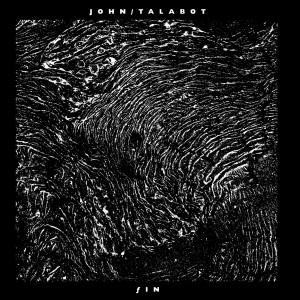
14.
John Talabot
ƒIn
[Permanent Vacation]
In what has been a pretty solid year for dance music, ƒIN was really the first to capture our attention. Right from the creepy marshland samples and relentlessly tugging synths on “Depak Ine,” John Talabot’s addictive, breathless collection of deep house and disco hypnotized and enthralled. A darker and considerably more torrid experience than his previous clutch of singles, ƒIN delved into a deeply nuanced universe, a peculiar feat since the music itself is all chugging bass, muggy summer nights and full moon parties. But it’s the details that complete the experience; the millipede percussion of “H.O.R.S.E.,” the radiant vocal samples on “When The Past Was Present,” the damp thwack of the snare in “Estiu,” every tracks heaves and sighs. Still, in the end, for all its emphasis on rhythm, nothing ever drowns out the beat of its heart.
– Brendan Frank

13.
Ty Segall
Twins
[Drag City]
In a year of three Ty Segall albums, determining a clear favorite can be a tricky proposition. Even this year, the basic format of each of Ty’s releases was similar enough. Three LPs of catchy muscular guitar rock, each only gaining their slight differences in the shaping hands of their collaborators. Hair, made in collaboration with White Fence, took on the baked nausea of Tim Presley’s more upbeat releases. Slaughterhouse, made with his live band, took on the noisy reckless abandon of his live sets and sublimated that energy into a abrasive collection of needle-firmly-in-the-red rock songs. For Twins, Ty scaled back. He created the album largely on his own, exploring the dual natures of himself and his city across a set of cleaned up garage rock that hearkened back to his bizarre headspace surrounding Melted. It’s not Segall at his most unhinged, or his most out-there, but it’s the album where he was most himself. He scorches still, but delivers his tunes in a more straightforward (and in many ways more potent) than he did on any of his other 2012 releases. It’s the best work of the year for a man in the best year of his life, striking stuff, certainly.
– Colin Joyce

12.
Lost In The Trees
A Church That Fits Our Needs
[Anti-]
To call Lost in the Trees’ second album A Church That Fits Our Needs ‘beautiful’ would be extremely accurate, but also highly diminutive. Constructed and composed as a tribute to singer Ari Picker’s mother, who took her own life, the album is grandiose and melodically inviting, while simultaneously shot through with a vivid pain and coldness that can only come from the heart of someone who has lived through extended and deep emotional turbulence. Picker’s lyrics are rich with the detail of someone who has lived and relived histrionic moments in his mind, and who has mulled over the gap left in his life that his mother once filled. His words are tied into a rich tapestry of sounds that gracefully deliver them to the listener with as much emotion as they had when they poured from Picker’s mind. Dramatic strings, ghostly horns, immaculate percussion, gleaming harps and ambient field recordings are just some of the elements that pull together the simultaneous images of his love for his mother and the time spent in nature trying to escape the pain of her loss. A Church That Fits Our Needs is a stirring tribute to Ari Picker’s mother, and the fact that he was willing to release this album and adorn it with the image of a woman whom he clearly loved extremely deeply, tells you all you need to know about its quality.
– Rob Hakimian
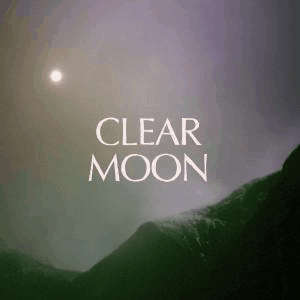
11.
Mount Eerie
Clear Moon / Ocean Roar
[P.W. Elverum & Sun]
As much singular works of art as they are irrevocably bound together, the twin 2012 offerings from Mount Eerie stand as the culmination of mastermind Phil Elverum’s previous works. This is true even when considering 2001’s The Glow, Pt 2, which is itself a masterwork. But with Clear Moon and Ocean Roar, Elverum has created a monolithic statement of catharsis and joy, with the quieter, more introspective moments on Clear Moon clashing against the thunderous noise on Ocean Roar. And while both albums race between the quiet and loud spectrums that have populated past Mount Eerie albums, there is a weight and gravitas to these records that set them apart from other albums in his discography.
While the quiet, beautifully structured “Through the Trees, Pt. 2” on Clear Moon may seem at first glance to have nothing in common with tracks from Ocean Roar such as the brutally haunting “Pale Lights,” these two tracks both set the stage for their respective albums and force the listener to pay attention—something which many artists and albums fail to demand from their fans. These are not passive albums. They require nothing less than our full time and commitment and will casually pass by those unwilling to give them their due. The dense production and layers of drawn out aural sensation wrap these albums in a haze of emotional volatility, with each album, and each song, drawing the listener in on far more personal level than almost any other album this year.
– Joshua Pickard


